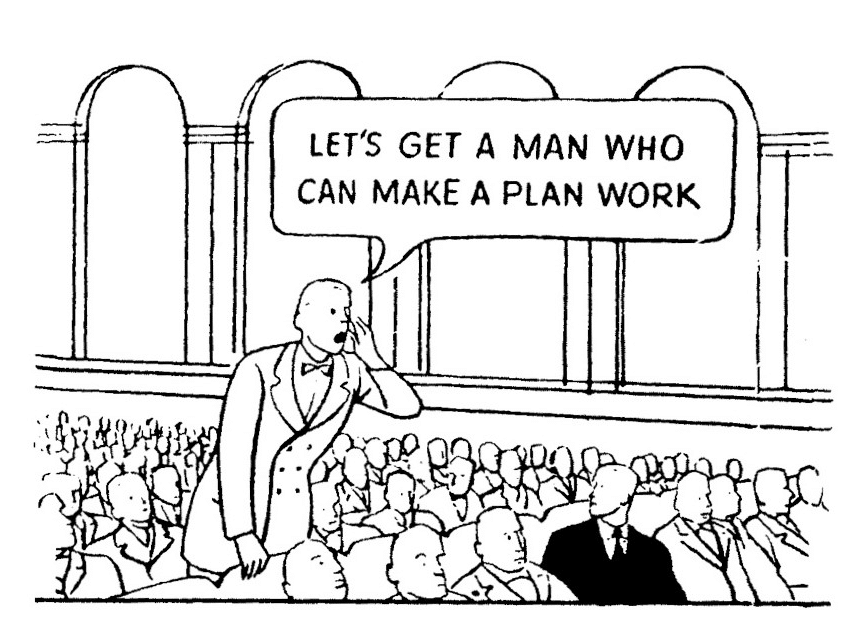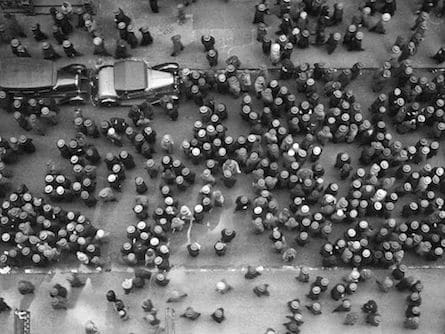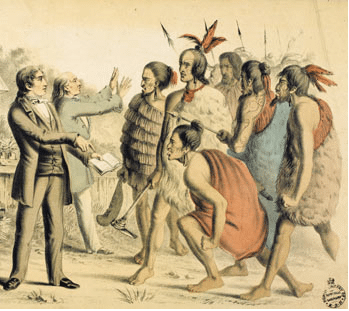All Epsilon Theory Content
Everything we have published at Epsilon Theory since 2013, an archive of more than 1,000 evergreen notes.
How much richer are we than we “should” be in the Great Financial Asset Bubble? Not you, I mean, you’re just as rich as you should be, of course. I mean everyone else.
Two short stories from the 19th century that teach us more about investing than any white paper. Although I suppose that isn’t saying much. What I’m saying is they’re good and you should read them. And this.
In baseball and in investing and in life, we often miss the obvious truths that are staring us in the face. Sometimes that delusion is willful and sometimes it is accidental.
Nowhere is the cartoonification of data more obvious than in the construction and publishing of labor reports, and nowhere is it more influential on markets and politics.
Part 2 of a three-part series on what it means to have a polarized electorate and a monolithic market. Today’s note: How do things fall apart in a monolithic market? Not with a bang but a whimper.
So many words and ideas are effectively unusable today, because it’s impossible to use them without triggering readers. It’s a whirlwind brief of centrifugal…I mean, centripetal force.
Friedrich Hayek was a keen observer of the human condition, particular in the era of the Strong Man. He was an even keener observer of the use of Narratives to exploit that human condition.
A portfolio is, after all, a vessel. It is a container for our financial investments, and what we leave OUT of that container is every bit as important as what we put IN.
Catching up on correspondence with some notable reader emails. In this edition, we take a look at some reader responses to the recent note ‘Letters from a Birmingham Museum.’
Climbing a wall of worry is the least understood and most powerful crowd behavior of a bull market. When there’s no real information, we create it by conquering artificial hurdles and challenges.
The OG Epsilon Theory reading list, now 4 years old. Luckily the classics never change. (Ed. Note: This is true, Ben, but not an excuse to keep quoting The Godfather) (Ed. Ed. Note: Got any more LOTR quotes, Rusty?)
Teaser: What do Tesla, crypto, and men-who-wear-hats all have in common? They’re all driven by fashion, which is another word for the Common Knowledge game.
Nowhere is the cartoonification of politics and investing more prominent than in PensionWorld, where the need to appear to do something is often more powerful than our ability to do so.
Isaac Asimov’s Foundation Trilogy isn’t just science fiction. It’s a blueprint. It’s a blueprint for how civilization falls, or a culture fails, and what it takes to rebuild it as quickly as possible.
The true face of Futurism is one part technological dependence, and two parts obsession with the technologies we create, instead of the people they were designed to help.
In which Ben discovers that losing a hive of bees, like losing sociopathic sheep, industrially inefficient chickens, or really any farm animal, teaches its own lessons.
In which readers ask how to apportion the market effects of Fed jawboning and Fed asset purchases and sales (to the extent that the latter is not just part of the former’s cartoon).
In tangible terms, I’m not sure that Michael Cohen’s flip on DJT has done much to change anything, as much as the left would like it do. From a Narrative perspective, however, it is a big deal.
In which we reference an interesting article from Colin Woodward arguing against Common Knowledge of the rural/urban divide in the United States.
We write about the Common Knowledge Game a lot in Epsilon Theory, because it’s the central game of crowds and narratives.
Common knowledge is something that we all believe everyone else believes.















